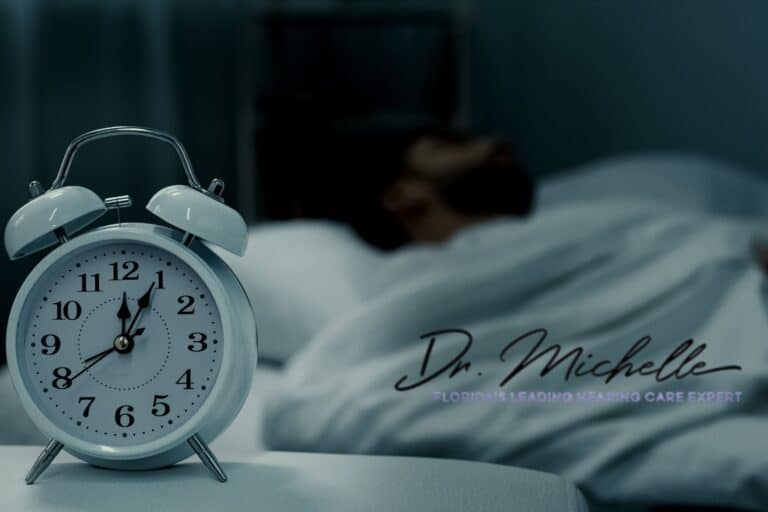Sleep is more than just a nightly routine; it is a cornerstone of maintaining optimal health. Equally vital is our hearing health, an often-overlooked area that significantly impacts communication and quality of life. Dr. Michelle, an esteemed specialist in audiology and hearing care, delves into the intricate relationship between sleep quality and auditory health. This article unravels the connections between restful nights and sharper hearing.
Understanding the Basics
**The Auditory System: A Brief Overview**
Our auditory system is a complex network that processes sound, allowing us to engage and interact with our environment. This system involves the outer ear capturing sound waves, the middle ear translating them into vibrations, and the inner ear converting them into neural signals for the brain.
**The Sleep Cycle: An Overview**
Sleep consists of multiple stages, from light sleep to the deep, restorative phases known as REM (Rapid Eye Movement) sleep. For individuals aged 60 and above, the quality and quantity of sleep play critical roles in sustaining overall health.
**Quality Sleep: A Health Priority**
Achieving quality sleep is essential, not just for energy restoration but also for its profound impact on cognitive functions and physical health.
The Connection Between Sleep and Hearing Health
**Scientific Insights**
Recent studies highlight how sleep directly influences auditory processing. Good sleep enhances the brain’s ability to process sounds, improving auditory memory and sound discrimination. REM sleep, in particular, is crucial for these auditory functions.
**The Impact of Poor Sleep**
Subpar sleep can burden the brain’s auditory processing capabilities, potentially leading to or worsening hearing issues. Chronic sleep deprivation can have long-term effects, compounding auditory health challenges.
Conditions Linking Sleep and Hearing Loss
**Sleep Disorders and Hearing Health**
Conditions like sleep apnea and insomnia not only disturb sleep but also pose severe threats to hearing well-being. Untreated sleep disorders can escalate hearing difficulties, adding layers of risk to one’s health profile.
**Complications of Neglected Sleep Disorders**
Ignoring sleep conditions can result in cardiovascular problems, cognitive impairments, and aggravated hearing loss. The compounded effects necessitate timely intervention.
Practical Tips for Improving Sleep to Support Hearing Health
1. **Consistent Sleep Schedule**: Stabilize your body’s internal clock by adhering to a regular sleep timetable.
2. **Create a Sleep-Friendly Environment**: Ensure a quiet, dark, and comfortable setting to enhance rest quality.
3. **Regular Hearing Check-Ups**: Regular consultations with hearing specialists, like Dr. Michelle, can identify potential problems early, offering advice tailored to your auditory health needs.
Personal Stories and Testimonials
Patients have shared transformative experiences where improved sleep has led to noticeable enhancements in hearing clarity and reduced tinnitus. These stories emphasize the profound benefits of harmonizing sleep and hearing health interventions.
This exploration into the synergistic relationship between sleep and hearing emphasizes the necessity of addressing both areas proactively. Sleep and hearing go hand-in-hand in fostering a life of enriched perceptions and interactions. Prioritizing sleep for enhanced hearing health isn’t just beneficial—it’s imperative. We invite you to schedule an appointment with Dr. Michelle to receive personalized advice and comprehensive hearing evaluations.



